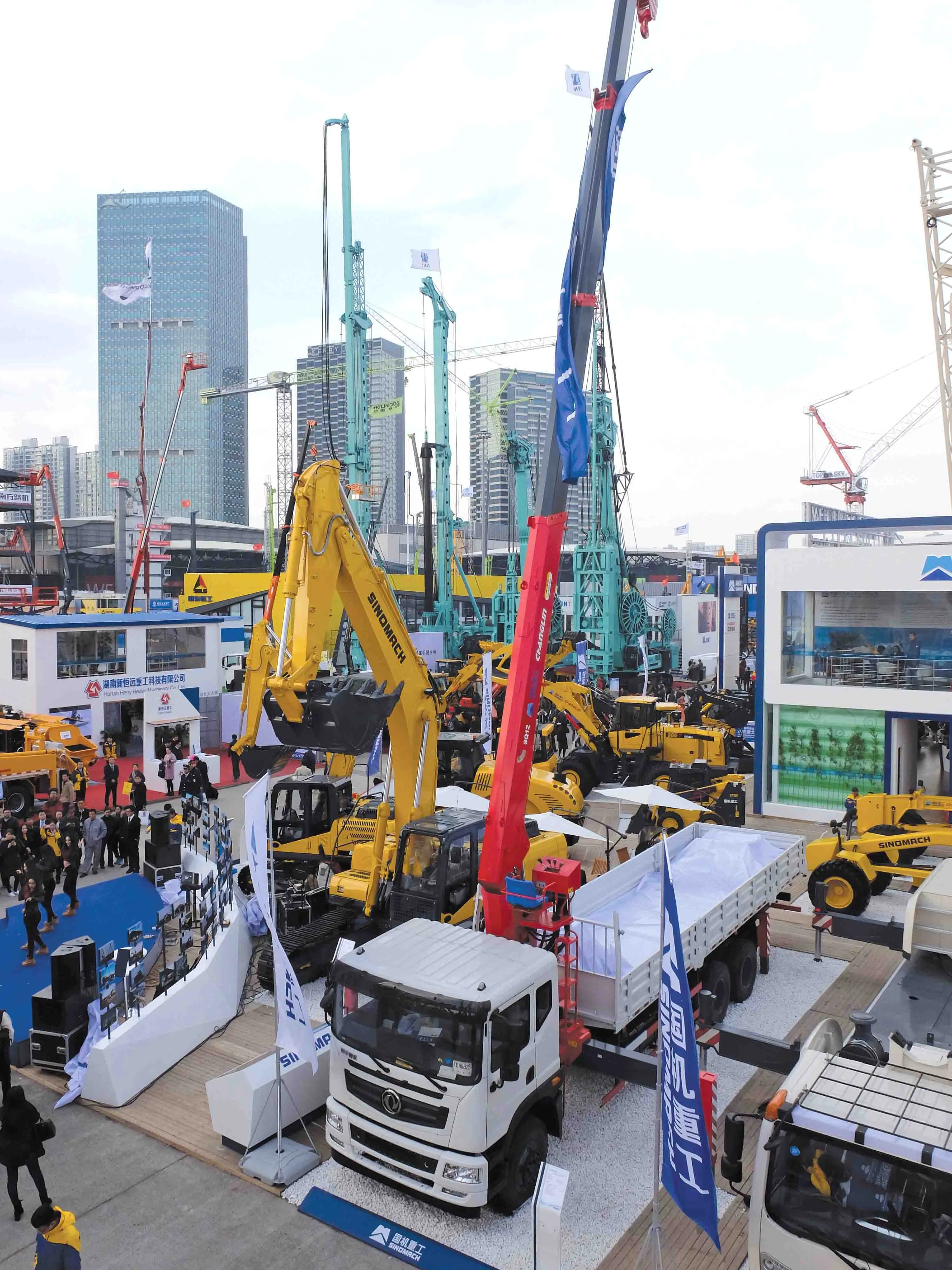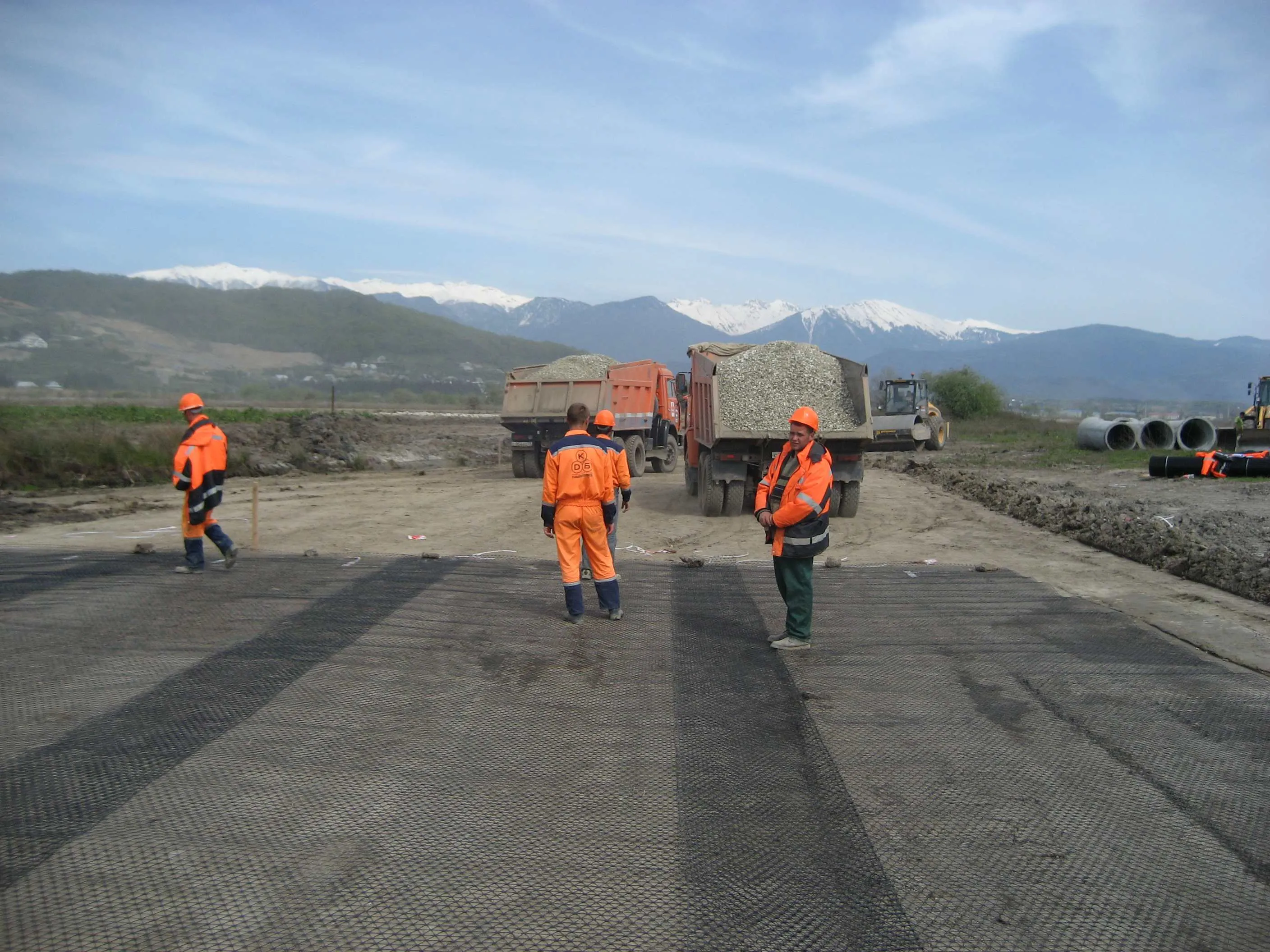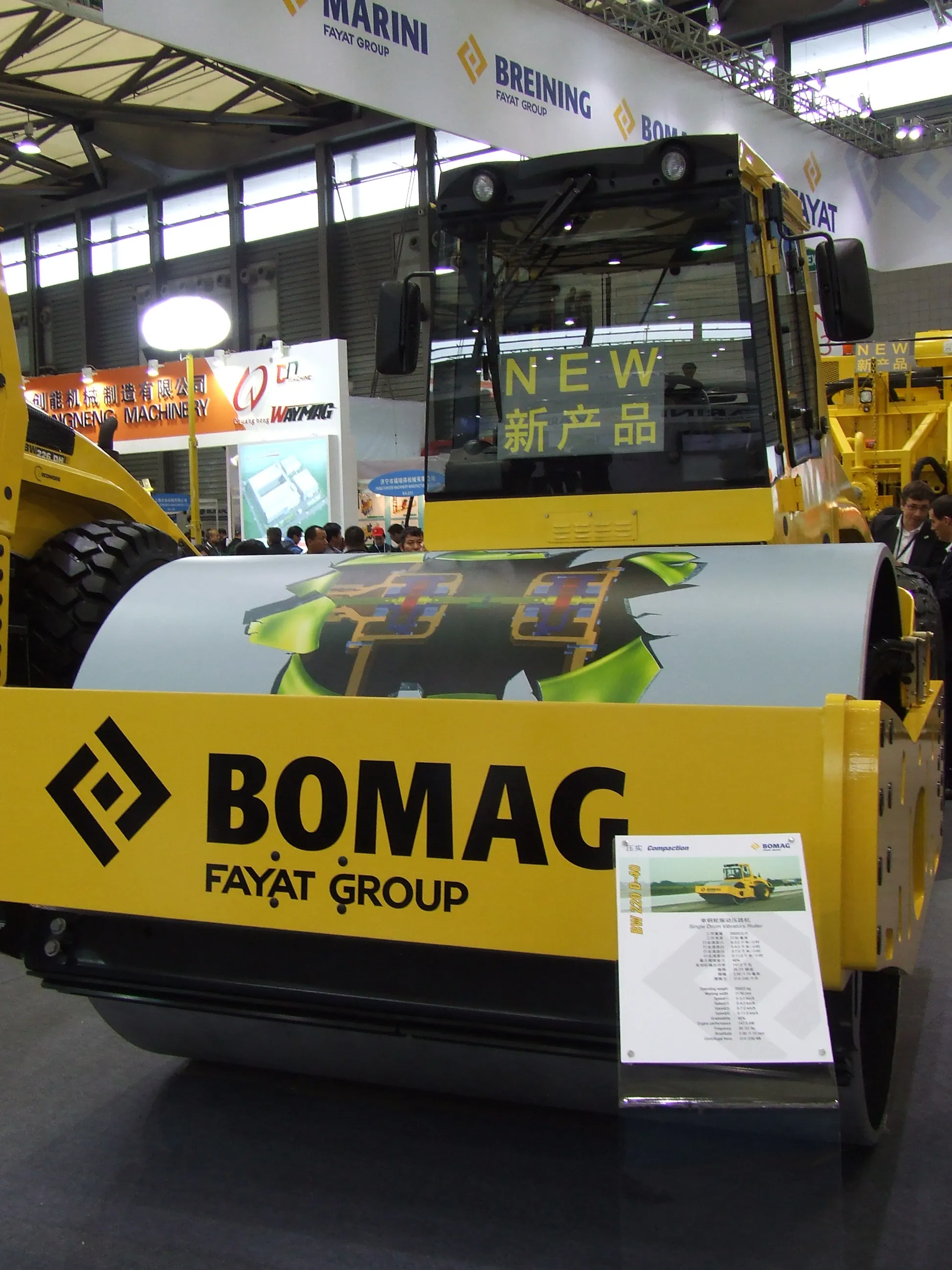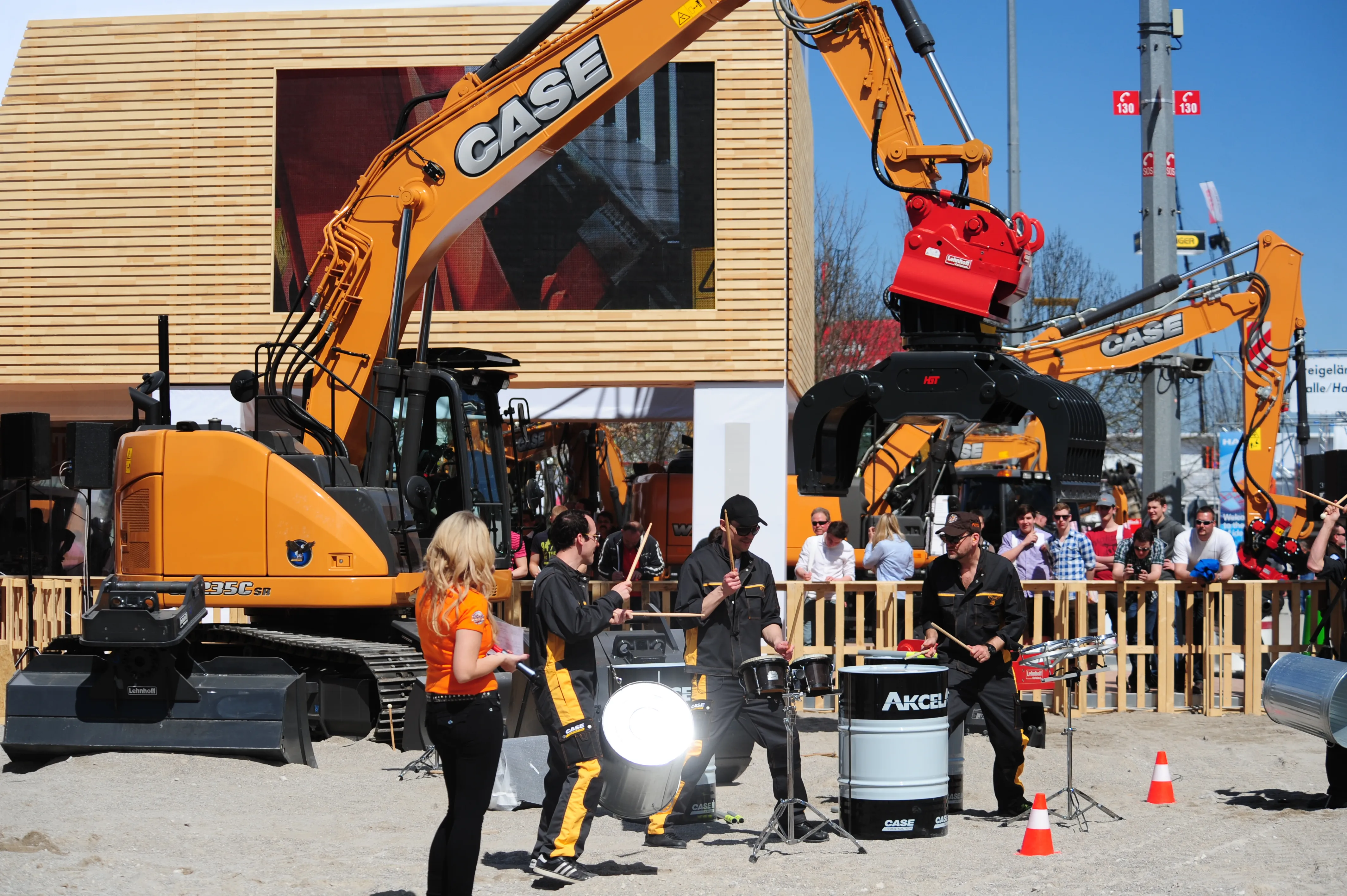Key manufacturers reported a return to business confidence in China at the recent bauma China 2016 construction equipment exhibition
The event was held at the Shanghai New International Expo Centre (SNIEC) and attracted 170,000 visitors from 149 countries, despite the cold weather and constant rain that plagued its first two days. The healthy attendance is a reflection of the gradually improving Chinese market. The Chinese economy suffered a slump in business levels in recent years, following a boom per
February 1, 2017
Read time: 7 mins

Key manufacturers reported a return to business confidence in China at the recent bauma China 2016 construction equipment exhibition
The event was held at the Shanghai New International Expo Centre (SNIEC) and attracted 170,000 visitors from 149 countries, despite the cold weather and constant rain that plagued its first two days. The healthy attendance is a reflection of the gradually improving Chinese market. The Chinese economy suffered a slump in business levels in recent years, following a boom period, leading to a massive downturn in sales of construction machines. However the worst of that slump is now past and many firms are seeing sales start to climb again in China, albeit slowly.
Figures from the Chinese Construction Machinery Association (CCMA) reveal the rise in the Chinese construction equipment market. At a presentation for next year’s2730 BICES 2017 equipment show in Beijing, Su Zrmeng, deputy secretary general for the CCMA, commented that while the market has been down in recent years, it is now rising once more. And he added that he expects this growth to continue beyond this year. Zrmeng said the market grew 6.63% between January and September this year. He said that the CCMA expects this healthy progress to continue at a similar rate over the next six months.
This resurgence is of key importance for the construction equipment market as a whole. China’s demand for construction machines has driven the equipment market on a worldwide basis in recent years. The country’s demand for construction machines has seen international firms and local companies building huge quantities of units to satisfy customer needs. When the slump hit there were large number of used machines with low hours on the market, but these stocks have now become depleted, with customers once again ordering new units.
The demand for equipment comes from right across the spectrum, with both local and international manufacturers also keen to unveil new models at the show.
Finnish firm Allu revealed that the company is benefiting from strong interest in its stabilisation technology due to the need to redevelop former industrial sites or areas featuring poor ground conditions. The firm is working with a Chinese research body to develop ground stabilisation standards for China. The technology can be used to harden soils, allowing construction projects, as well as for treating some contaminated soils. The company is also seeing an increase interest for its crushing buckets, which are also being used to help clear former industrial sites, as well as for general materials sizing purposes. The firm’s president Ola Ulmala said, “We’re seeing growth of 200% year on year.”
201 Deutz said it believes strongly in the Chinese market, with a strong future for the Deutz Dalian Engine (DDE) joint venture partnership it has in the city of Dalian. The factory is producing engines both for the Chinese market and for export and the firm has high hopes for the new four-cylinder, 9litre TCD9.0 unit when it comes into production.
A new production facility in China will allow2992 Keestrack to supply its mobile tracked crushing and screening systems directly to customers in China. The company says that it is seeing a steady growing interest in tracked plant, making a notable change for China as the market has traditionally relied heavily on static units. The mobility of these tracked units allows them to be more versatile and more efficient, with Keestrack also claiming its units are premium models that offer competitive advantages over their rivals such as lower fuel consumption and running costs.
718 Liebherr is another international manufacturer gearing up production of equipment in China. It is now building two excavators and a new L550 wheeled loader that have been developed specifically for the Chinese market. The new 20tonne class R920 excavator is of note as it is powered by a 196 Cummins diesel rather than a Liebherr unit. Liebherr explained that this is in recognition of the strength of coverage for 196 Cummins diesels in China, as well as the customer acceptance for these engines. The R920 and R966 excavators available now will be joined by other models, the R922 and R924 in due course.
273 Marini is seeing steady demand in China for its asphalt plants, with the firm noting too that customers are increasingly keen to buy equipment with a greater degree of sophistication. Around half of the company’s batch plant production is for the Chinese market. The changes to the regulations on materials recycling by the Chinese Government have also encouraged asphalt producers to buy more sophisticated high-capacity batch plants featuring recycling circuits.
299 Perkins is developing its aftermarket sales in China, focussing on increasing product support and supplying parts. Although China has had a problem with fake parts for many years, Perkins believes it is educating its customers with regard to making better choices by opting for genuine replacement parts. Ian Bradford, aftermarket product manager said, “Customers are starting to appreciate the additional value you get with a genuine part. We believe with a genuine part you get the lowest cost throughout the life of the machine.”
2991 Powerscreen is now setting up operations in China and is appointing dealers. According to the firm, there is growing interest in the potential of tracked crushing and screening plants. The company is starting by bringing in three models from the smaller end of its range that will be used for demonstrations but reports strong interest from the market. A spokesperson said, “It’s an opportunity for Powerscreen. We understand the applications and that’s going to be our strength.”
Wacker Neuson has strong confidence in the Chinese market and is currently building a new factory in the Pinghi industrial zone. The 30,000m2 factory should be commencing production by the end of 2017 and will start its production with midi and mini excavators weighing up to 10tonnes. The facility will produce machines both for China and the wider South East Asian market. The company said that sales in the Asia Pacific territory as a whole were €32.6 million in 2015 but look likely to hit €33.4 million for 2016.
2395 Wirtgen says that it is building market share in China, claiming around 25% of sales of asphalt pavers for example. In view of demand, the firm is offering new models for the 1194 Vögele paver range that are developed specially for the needs of the Chinese market. The Super 1880L and Super 1880-3L tracked pavers have features including extended hoppers to meet the needs of Chinese customers. These units share features with the existing Super 1800-3 and Super 1900-3 models but have been tailored to meet the needs of the Chinese customer base.
Chinese company2490 XCMG has focussed strongly on its core construction equipment sector, while many of its large Chinese rivals have followed policies of diversification. Jiansen Liu, assistant president at XCMG commented, “We have to stick to our own strategy.”
The company says it is now seeing market recovery also and the executive commented, “We are very optimistic because our market is rebounding,” adding that the country’s construction sector is no longer retracting. A key policy is the Chinese Government’s establishment of banking facilities to help fund infrastructure investment. The country is keen to expand its highway network both in China and in neighbouring Asian countries, taking a long-term view with regard to developing transport connections.
Stefan Rummel, managing director of3995 Messe München said, “5930 bauma China 2016 received a positive visitor response. It has provided participants with good opportunities for industry communication and exploring product innovations, market trends and possible solutions despite the current uncertain situation.”
Jun Qi, chairman of the CCMA said, "The success of the exhibition reflects the confidence of the exhibitors worldwide towards the Chinese economy as well as the world economy.”
The show occupied an area of 300,000m², attracting 2,953 exhibitors from 41 countries. Around 70% of the exhibitors came from China while 45% were new to the event. After China, the top 10 visitor countries and regions abroad were, in order: South Korea: Russia; Malaysia; Thailand; India; Japan; Singapore; Taiwan; Indonesia; and Australia. This year’s bauma China featured seven national pavilions: Germany; Italy; Korea; Spain;Turkey, the UK; and the US. The next bauma China takes place at the SNIEC from November 27th to 30th, 2018.
The event was held at the Shanghai New International Expo Centre (SNIEC) and attracted 170,000 visitors from 149 countries, despite the cold weather and constant rain that plagued its first two days. The healthy attendance is a reflection of the gradually improving Chinese market. The Chinese economy suffered a slump in business levels in recent years, following a boom period, leading to a massive downturn in sales of construction machines. However the worst of that slump is now past and many firms are seeing sales start to climb again in China, albeit slowly.
Figures from the Chinese Construction Machinery Association (CCMA) reveal the rise in the Chinese construction equipment market. At a presentation for next year’s
This resurgence is of key importance for the construction equipment market as a whole. China’s demand for construction machines has driven the equipment market on a worldwide basis in recent years. The country’s demand for construction machines has seen international firms and local companies building huge quantities of units to satisfy customer needs. When the slump hit there were large number of used machines with low hours on the market, but these stocks have now become depleted, with customers once again ordering new units.
The demand for equipment comes from right across the spectrum, with both local and international manufacturers also keen to unveil new models at the show.
Finnish firm Allu revealed that the company is benefiting from strong interest in its stabilisation technology due to the need to redevelop former industrial sites or areas featuring poor ground conditions. The firm is working with a Chinese research body to develop ground stabilisation standards for China. The technology can be used to harden soils, allowing construction projects, as well as for treating some contaminated soils. The company is also seeing an increase interest for its crushing buckets, which are also being used to help clear former industrial sites, as well as for general materials sizing purposes. The firm’s president Ola Ulmala said, “We’re seeing growth of 200% year on year.”
A new production facility in China will allow
Wacker Neuson has strong confidence in the Chinese market and is currently building a new factory in the Pinghi industrial zone. The 30,000m2 factory should be commencing production by the end of 2017 and will start its production with midi and mini excavators weighing up to 10tonnes. The facility will produce machines both for China and the wider South East Asian market. The company said that sales in the Asia Pacific territory as a whole were €32.6 million in 2015 but look likely to hit €33.4 million for 2016.
Chinese company
The company says it is now seeing market recovery also and the executive commented, “We are very optimistic because our market is rebounding,” adding that the country’s construction sector is no longer retracting. A key policy is the Chinese Government’s establishment of banking facilities to help fund infrastructure investment. The country is keen to expand its highway network both in China and in neighbouring Asian countries, taking a long-term view with regard to developing transport connections.
Stefan Rummel, managing director of
Jun Qi, chairman of the CCMA said, "The success of the exhibition reflects the confidence of the exhibitors worldwide towards the Chinese economy as well as the world economy.”
The show occupied an area of 300,000m², attracting 2,953 exhibitors from 41 countries. Around 70% of the exhibitors came from China while 45% were new to the event. After China, the top 10 visitor countries and regions abroad were, in order: South Korea: Russia; Malaysia; Thailand; India; Japan; Singapore; Taiwan; Indonesia; and Australia. This year’s bauma China featured seven national pavilions: Germany; Italy; Korea; Spain;Turkey, the UK; and the US. The next bauma China takes place at the SNIEC from November 27th to 30th, 2018.








